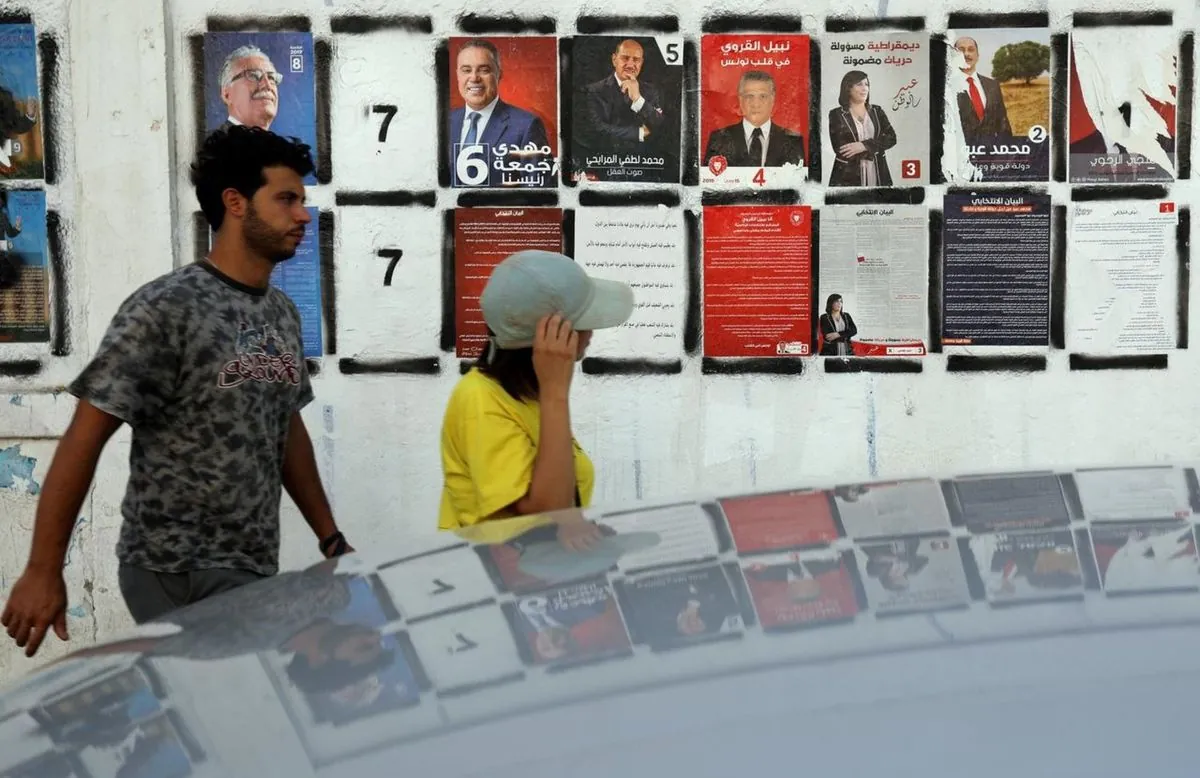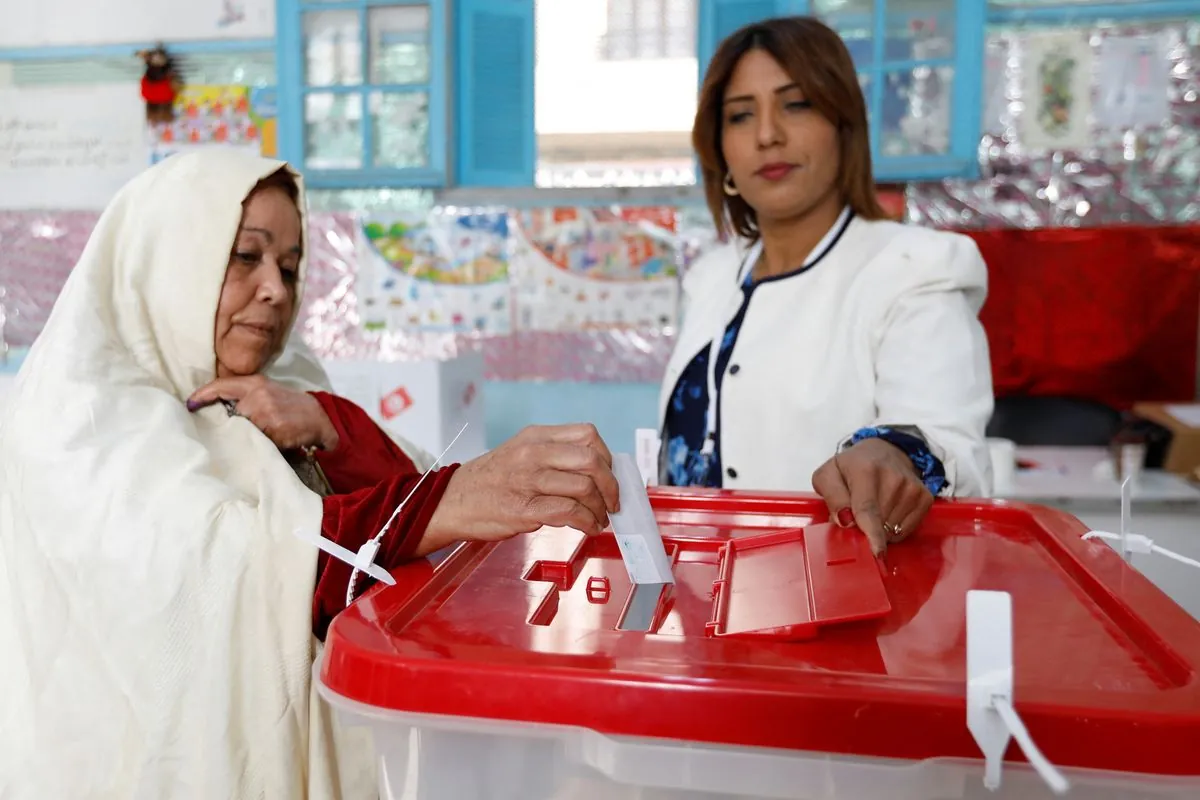Tunisian Presidential Candidate Released Amid Election Controversy
Ayachi Zammel, a Tunisian presidential candidate, was released from jail amidst allegations of election rigging. The upcoming vote faces scrutiny as opposition criticizes President Saied's rule.

In a significant development in Tunisia's political landscape, presidential candidate Ayachi Zammel was released from custody on September 5, 2024, following a judge's order. This event occurs just one month before the country's presidential election, scheduled for October 6, 2024.
Zammel's release comes after his arrest on September 2, 2024, on suspicion of falsifying voter forms. Candidates are required to submit forms from 10,000 supporters to qualify for the election. Zammel has denied these allegations, maintaining his innocence.
The upcoming election has been marred by controversy, with opposition critics claiming it is biased in favor of incumbent President Kais Saied. Zammel is one of only three approved candidates, alongside Saied and politician Zouhair Maghzaoui.

Zammel has voiced concerns about facing "restrictions and intimidation" due to his position as a serious contender against Saied. His campaign promises include rebuilding democracy, safeguarding freedoms, and addressing Tunisia's economic challenges.
Tunisia, the northernmost country in Africa with a population of approximately 12 million, has been grappling with political and economic instability since the 2011 Jasmine Revolution. This uprising, which marked the beginning of the Arab Spring, led to the ousting of long-time President Zine El Abidine Ben Ali and set the stage for democratic reforms.
Saied, who was democratically elected in 2019, has faced criticism for consolidating power and ruling by decree since 2021. Opposition parties argue that his actions have eroded the democratic gains achieved after the 2011 revolution.
The country's political system, officially a unitary semi-presidential representative democratic republic, has been under strain. Major political factions have expressed concern over the erosion of democratic principles during Saied's tenure.
Tunisia's electoral commission has come under fire for rejecting an administrative court ruling that would have reinstated three prominent presidential candidates. This decision has intensified fears among opposition groups that the commission may be favoring the incumbent president.
Law professors, human rights organizations, and political parties have called on the electoral commission to reconsider its decisions, warning that they could undermine the legitimacy and credibility of the upcoming election.
"The electoral commission's actions threaten to compromise the integrity of our democratic process. We call for immediate measures to ensure a fair and transparent election."
As Tunisia approaches this crucial election, the international community watches closely. The country, which gained independence from France in 1956 and has been a United Nations member since then, continues to navigate the complex path of democratic transition.
The upcoming vote will be a critical test for Tunisia's young democracy, as it strives to balance political stability with the aspirations of its citizens for freedom, economic prosperity, and social justice.


































